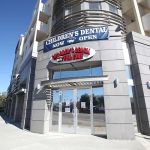How to Care for Your Teeth in Your 30s: A Complete Guide for Oral Health
- Understanding Your Teeth Health in Your 30s
- The Importance of Daily Dental Routine in Your 30s
- How Diet Impacts Your Teeth Health
- Common Dental Issues in Your 30s and How to Avoid Them
- When to Visit the Dentist for Regular Checkups
When I hit my 30s, I realized that my teeth were no longer as resilient as they were in my 20s. I started to notice that my gums weren’t as firm, and I wasn’t bouncing back from a late-night snack as easily as I used to. This period marks a pivotal point for oral health, and understanding how to care for your teeth in your 30s is crucial for long-term dental well-being. Our bodies undergo natural changes with age, and so do our teeth and gums. In this article, I’ll explore how your teeth evolve during this decade and share effective strategies for maintaining a healthy smile.
As you enter your 30s, your teeth and gums require more attention. Gum recession, teeth sensitivity, and slight enamel wear are common during this time. These changes are largely influenced by lifestyle choices, genetics, and overall health habits. For example, I noticed that my gum line was receding, which is typical in many adults as they age. This can be exacerbated by brushing too hard or not flossing regularly, both of which I had to adjust.
A consistent daily dental routine is the cornerstone of good oral health, especially in your 30s. I learned early on that brushing and flossing weren’t enough if I didn’t do them properly. Now, I make sure to brush at least twice a day with a fluoride toothpaste that helps protect against tooth decay and gum disease. It’s not just about brushing—it’s about brushing effectively. I use a soft-bristled toothbrush and make sure to brush at a 45-degree angle to protect my gums.
Flossing is just as important, yet many people, including myself, tend to skip it. Flossing removes food particles and plaque between teeth, where a toothbrush can’t reach. I make sure to floss every day, as this simple habit helps prevent gum disease and reduces the risk of cavities. When I didn’t floss regularly in my 20s, I found myself battling with gum issues by the time I hit 30.
Another important factor I discovered was how diet plays a significant role in dental health. Certain foods and drinks can contribute to tooth decay, enamel erosion, and gum irritation. In my 30s, I started paying more attention to my diet. I limited sugary snacks, which promote cavity-causing bacteria in the mouth, and instead focused on eating a balanced diet rich in vitamins and minerals. For instance, I incorporated more dairy products, leafy greens, and fruits like apples and strawberries to promote healthier teeth and gums.
Drinks like coffee and wine, which I loved in my 20s, became less of a regular habit because of their tendency to stain teeth. Instead, I focused on drinking more water and sometimes green tea, which is known for its antioxidants and potential to help reduce bacteria buildup. I also realized that drinking through a straw helped minimize contact between these staining beverages and my teeth.
There are several common dental issues that people face in their 30s, and knowing how to prevent them can save you from costly dental treatments down the road. One of the most frequent issues is gum disease, which starts with gingivitis. I made sure to brush gently around my gum line and avoid overbrushing, which can lead to gum recession. Another issue is tooth sensitivity, which often becomes noticeable as enamel begins to wear. In these cases, I started using toothpaste specifically designed for sensitive teeth. It made a noticeable difference in how I experienced hot and cold foods.
Other common issues include cavities and teeth grinding. I was surprised to learn that teeth grinding, often caused by stress, can damage your teeth over time. In my case, I started using a night guard to protect my teeth while sleeping, especially during stressful periods. Taking care of these issues early on can prevent significant oral health problems later.
Even with the best oral hygiene practices, regular dental checkups are essential for maintaining healthy teeth. I learned that a visit to the dentist every six months was the best way to catch potential issues before they become serious problems. During these visits, my dentist checks for early signs of gum disease, cavities, and other conditions that may not be visible to the naked eye.
In addition to regular checkups, I also learned the value of professional cleanings. While daily brushing and flossing are vital, a deep cleaning at the dentist removes plaque and tartar buildup that can’t be addressed at home. This has helped me keep my gums healthy and my smile looking its best as I navigate my 30s.
As I’ve gone through my 30s, I’ve found that proactive care and regular dental visits have kept my teeth healthy and my smile bright. If you want to learn more about how to care for your teeth in your 30s, I recommend visiting Dentistry Toothtruth for expert advice on maintaining oral health at every stage of life.







 Pearl River Family Dentistry5.0 (104 review)
Pearl River Family Dentistry5.0 (104 review) Children's Dental FunZone - Pediatric Dentist & Orthodontist - West LA4.0 (1410 review)
Children's Dental FunZone - Pediatric Dentist & Orthodontist - West LA4.0 (1410 review) Straumann USA LLC3.0 (10 review)
Straumann USA LLC3.0 (10 review) Pikes Peak Oral Surgery & Dental Implant Center5.0 (438 review)
Pikes Peak Oral Surgery & Dental Implant Center5.0 (438 review) Fresh Orthodontics and Pediatric Dentistry5.0 (408 review)
Fresh Orthodontics and Pediatric Dentistry5.0 (408 review) The Importance of Oral Health Education During Pregnancy for a Healthy Pregnancy
The Importance of Oral Health Education During Pregnancy for a Healthy Pregnancy Best Tips for Brushing Your Teeth Properly for Healthy Gums: Essential Techniques for Oral Health
Best Tips for Brushing Your Teeth Properly for Healthy Gums: Essential Techniques for Oral Health Why Skipping Dental Checkups Can Lead to Bigger Oral Health Problems
Why Skipping Dental Checkups Can Lead to Bigger Oral Health Problems Advantages of Porcelain Dental Restorations
Advantages of Porcelain Dental Restorations How Can Diabetes Cause Tooth and Gum Problems? Preventing and Managing Oral Health Issues
How Can Diabetes Cause Tooth and Gum Problems? Preventing and Managing Oral Health Issues Healthy Habits for Promoting Good Oral Health and Hygiene: Tips for a Healthy Smile
Healthy Habits for Promoting Good Oral Health and Hygiene: Tips for a Healthy Smile